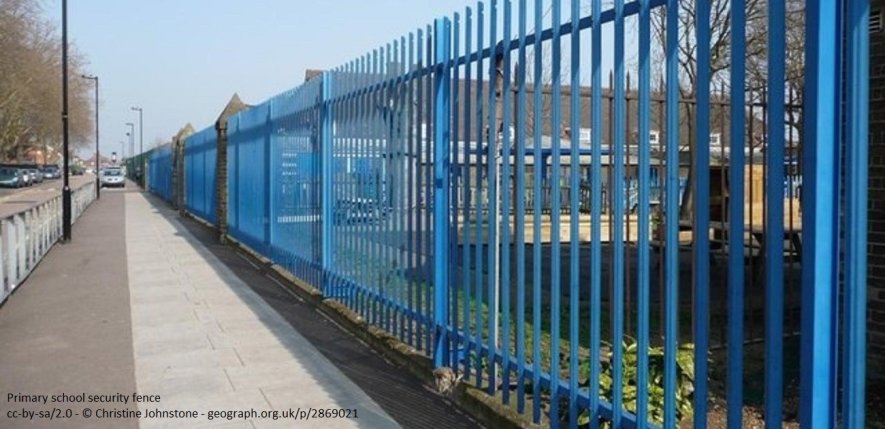
GCSE and A-Level results are now out and with students due to start and return to school in the next few weeks this could be a good time to review the security of your school.
Schools have a duty of care to their pupils and head teachers, together with the leadership teams, are responsible for putting a robust security policy in place and reviewing it on an annual basis.
There are two key times to consider; during school hours (term time) and out of hours (evenings, weekends and school holidays). Different risks and hazards are associated with these times and effective strategies need to be developed for each.
During school hours
Pupil, staff and visitor safety is the priority, but other criminal activities such as theft are also relevant. Over the years there have been many school incidents in the news, most often these are from schools in the United States but the UK has had its fair share too. Dunblane is the one most remember, even over 20 years later the horror of those events are still vivid in many minds.
The risk is of pupils, teachers or a member of the public entering the school premises with a weapon and using it. According to a report in the Guardian earlier this year 2,579 weapons, including knives, air guns and axes, were seized at schools in England and Wales between April 2015 and January 2017, from children as young as five. There have also been reports that Police are encouraging schools in London to install metal detectors in a bid to prevent knife crime.
As a result of the Violent Crime Reduction Act 2006, head teachers and authorised staff have the power to carry out a search, without consent, when they suspect knives or other offensive weapons are being carried. And the Offensive Weapons Act 1996 gives Police the power to enter school premises to carry out a search without the head teachers permission.
Controlling Access
Fencing around school grounds helps to ensure those entering the premises use a specified entrance, rather than walking across playing fields or the playground. It also keeps children safe during breaks and when outside.
It’s important to consider the aesthetic appeal of fencing to make the school welcoming rather than prison-like, and it should be selected to minimise any risk of accidents.
Strict access procedures need to be in place to prevent anyone unauthorised from wondering into school buildings. Visitors should follow a signing in process, providing their reasons for being on the premises and receiving an ID badge to be worn at all times. They also need to sign out again on exit. In addition to security, this process also provides information required in the event of a fire alarm.
Out of school hours
Empty school buildings and grounds can attract trespassers, vandals, thieves and arsonists, so it is important to put security measures in place to deter them. Schools often have expensive equipment which could be tempting to the opportunistic burglar. In fact the majority of crime in schools is opportunistic, so with some simple measures it can be quickly reduced.
Locks and Alarms
All external doors and windows should have appropriate locks with a connected alarm system. It is also important to consider who will respond to any alarms; the head teacher, another member of staff or a professional security operative.
Lighting
Vandals and trespassers can be deterred by bright lights. They don’t want to be seen, so if the areas are already well lit or lights are activated by motion sensors they may well move on to an easier target.
CCTV
CCTV is a common method of deterring criminal activity or recording evidence and helping to identify those involved. Cameras covering playgrounds, car parks and entrances to the school may deter any opportunistic intruders. CCTV can also be integrated with the alarm system and monitored externally by a security company, who will then be able to respond appropriately to the incident.
In addition, CCTV cameras can be useful, during school hours, for reception staff to see who is outside and if anyone is hanging around or acting suspiciously.
Local community
Schools are a key part of each community and many are used by local groups and associations to meet in during holidays or at weekends. Fostering these connections is a great way to reduce the amount of time school buildings are empty and encourages those people using it notice, and report, any irregular activity.
Security Company
Many schools are now employing the services of manned security companies, providing services such as static guarding, mobile patrols, keyholding and alarm response and CCTV monitoring. If the school has had a lot of problems either during or out of school hours it may be worth getting advice from a professional.
Reviewing security procedures
Security provisions should be dynamic. Procedures should be monitored and updated as incidents occur or at least every 12 months. Risk assessments need to be reviewed to ensure any changes; staff, new buildings, equipment etc. are taken into account. Professional security companies or Police crime prevention officers can provide valuable help and information, and it is often worth getting some independent expert advice.
Leisuresec
We provide security to schools, colleges and universities, so if you would like to find out more please get in touch and we’ll be glad to send an Area Manager out to meet you.

